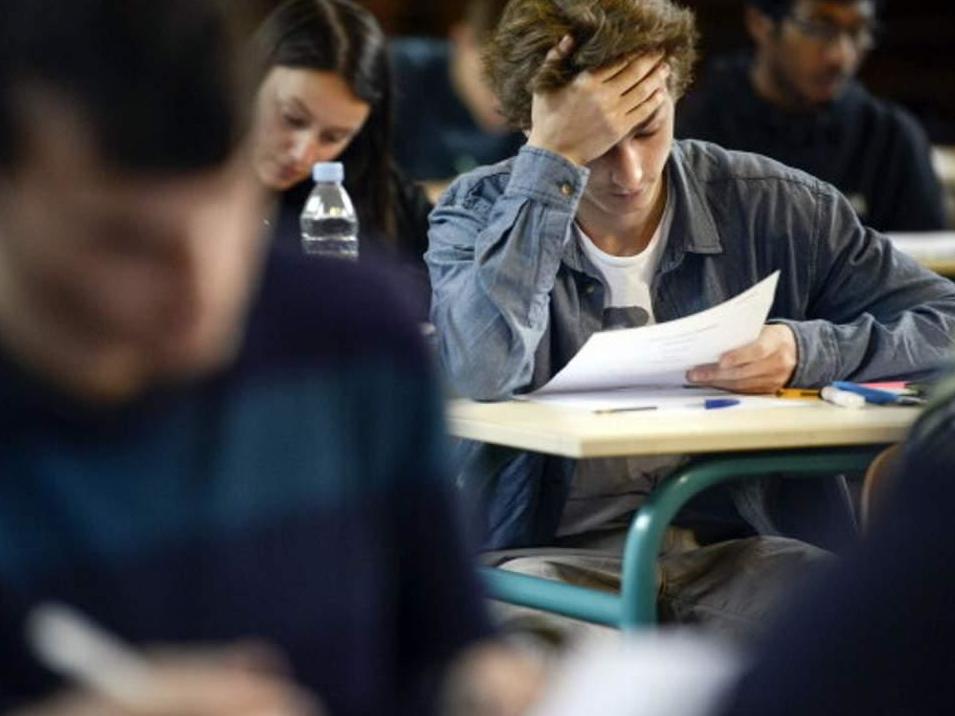Pupils should be banned from wearing all watches in exams to combat cheating, inquiry says
Exam boards must take the lead in monitoring 'the dark web' for malpractice, report says

Your support helps us to tell the story
From reproductive rights to climate change to Big Tech, The Independent is on the ground when the story is developing. Whether it's investigating the financials of Elon Musk's pro-Trump PAC or producing our latest documentary, 'The A Word', which shines a light on the American women fighting for reproductive rights, we know how important it is to parse out the facts from the messaging.
At such a critical moment in US history, we need reporters on the ground. Your donation allows us to keep sending journalists to speak to both sides of the story.
The Independent is trusted by Americans across the entire political spectrum. And unlike many other quality news outlets, we choose not to lock Americans out of our reporting and analysis with paywalls. We believe quality journalism should be available to everyone, paid for by those who can afford it.
Your support makes all the difference.Pupils should be banned from wearing all types of watches in exam halls to reduce cheating, an inquiry into exam malpractice has said.
Exam invigilators are often unable to distinguish between smartwatches and analogue watches that students wear in exam rooms, according to a commission set up by the exam boards.
Exam boards must take the lead in monitoring “the dark web” for exam malpractice and should make better use of technology - such as tracking packs of papers - to combat cheating, the report says.
It comes after questions from an A-level maths paper from Pearson, which runs Edexcel, were leaked online for the third year in a row despite microchipping being introduced this summer.
The inquiry, commissioned by the Joint Council for Qualifications (JCQ), said the variety of types of malpractice is increasing because of the “advance of technology and social media.”
“The difficulty of distinguishing between smart and non-smart watches presents a significant problem for the integrity of the examination system,” the report concludes.
A clampdown on all watches during exams one of the recommendations of the review.
Sir John Dunford, chair of the independent commission, said detected malpractice is “disproportionately damaging when it occurs, so it needs dealing with.”
Young people “tend to look at the time on their phone” Sir John said, and if they use a watch, it is often also used to look at other things, such as emails.
He said: “What is really difficult is with some watches you can just swap between the two very easily.
“It can look as if it’s a time-telling watch and actually, you press a button and it becomes an email-type watch and if you don’t ban them all I think you’re giving a very difficult job to invigilators who are looking round an exam room.So I think the obvious thing to do here is to ban watches.”
The report adds that “toilet sweeps” should be carried out during the exam season to stop pupils hiding notes, devices and other materials in toilet cubicles.
The commission also says it has concerns about the rise in applications for access arrangements and special consideration - such as when students are given extra time in exams - adding that exam boards should carry out more research into this trend.
There has been a 13 per cent growth in access arrangement approvals in three years, and a 27 per cent growth in special consideration approvals in the same time frame.
The review comes after official figures revealed that in the summer of 2018, students in England were penalised in 2,735 occasions for cheating in GCSE, AS and A-level exams.
The most common type of student cheating in 2018 was taking unauthorised materials, such as a mobile phone, into the exam hall.
The number of penalties given to GCSE and A-level students for taking phones into exam halls increased by 22 per cent last year compared to 2017.
Sir John added: “In all walks of life, there is a small proportion of dishonest people and the education system is no exception.
“There is a lot more that can be done to prevent malpractice by both staff and candidates.”
The JCQ, which represents exam boards, says it is considering a ban on all watches from next summer.
Mark Bedlow, chair of JCQ, said: “The commission’s findings show that the system is robust and that very little malpractice occurs due to the diligence and professionalism of those involved.
“However, the commission has noted a number of areas for improvement of our systems to further minimise incidents of malpractice.”
Geoff Barton, general secretary of the Association of School and College Leaders (ASCL), said: “Exam cheating and other types of malpractice are rare, and the vast majority of students, teachers, exams officers and school leaders behave with the greatest integrity.
“But the small number of reported incidents, particularly high-profile breaches, can have a disproportionate impact on the public’s perception of the exam system.”
He added: “In the longer term, we must rethink an exam system which is rooted in a pen-and-paper era that feels increasingly like an anachronism and is threatened by technologies which facilitate cheating.”
Join our commenting forum
Join thought-provoking conversations, follow other Independent readers and see their replies
Comments